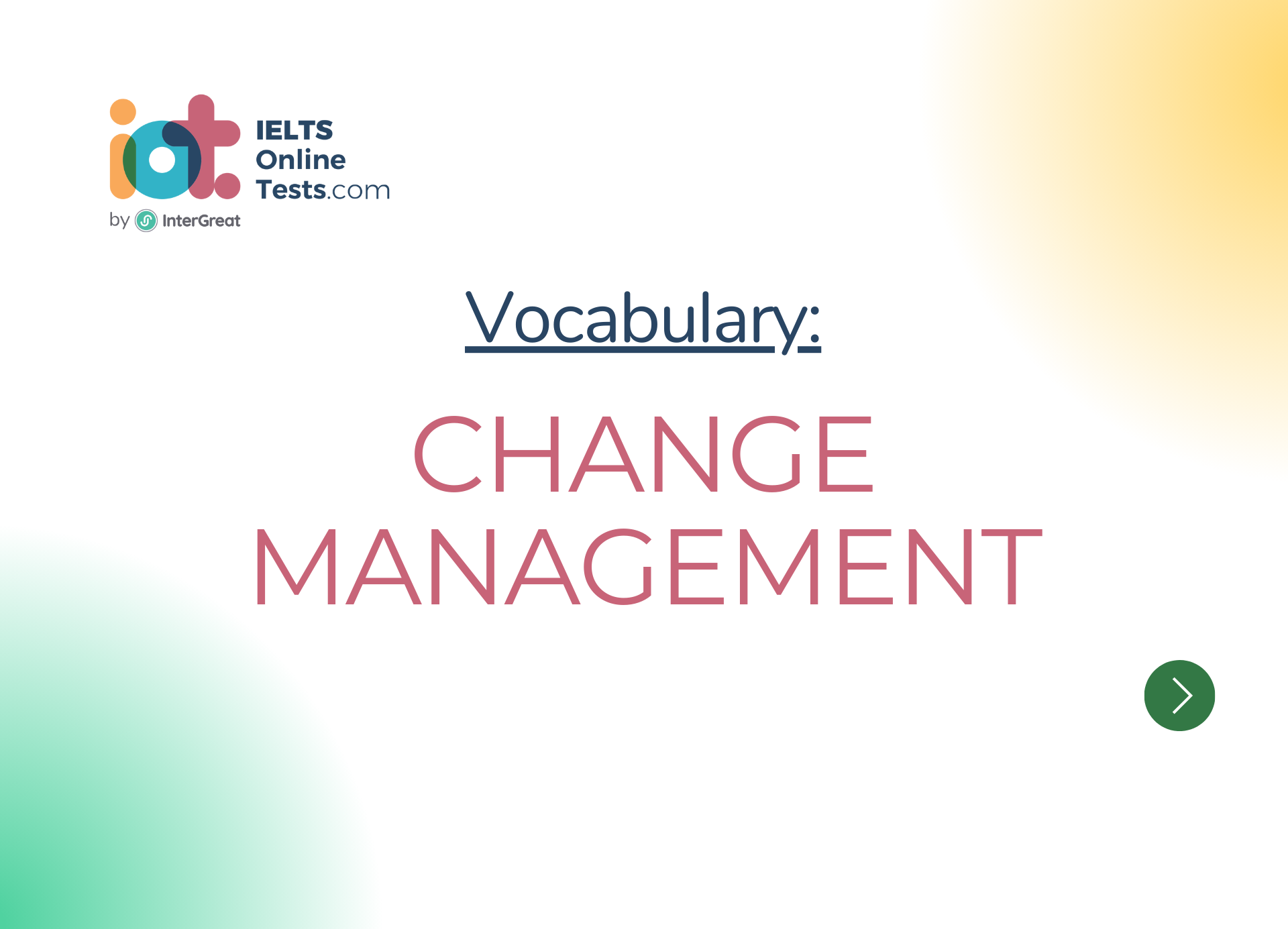
Change management
Here's a detailed list of vocabulary related to change management for the IELTS band score 4.5-6.0:
Change Management:
The process of planning, implementing, and guiding organizational or individual transitions to achieve desired outcomes.
Change Agent:
A person or group responsible for driving and facilitating the change process.
Change Initiative:
A specific project or program aimed at bringing about organizational change.
Change Readiness:
The preparedness of individuals or teams to embrace and adapt to change.
Resistance to Change:
The reluctance or opposition of individuals or groups to accept and adopt changes.
Change Strategy:
The overall plan or approach for managing the change process.
Stakeholder Engagement:
Involving and communicating with all parties affected by the change.
Change Communication:
Sharing information and updates about the change with stakeholders.
Change Implementation:
The actual execution of the change initiative.
Change Impact:
Assessing the effects and consequences of the proposed change.
Change Leadership:
The ability to guide and inspire others through the change process.
Change Vision:
A clear and compelling picture of the future state after the change is implemented.
Change Resistance Strategies:
Techniques to address and overcome resistance to change.
Change Monitoring:
Tracking and evaluating the progress of the change initiative.
Change Evaluation:
Assessing the success and effectiveness of the change after implementation.
Change Adoption:
The acceptance and integration of the change into the organization's culture.
Change Plan:
A detailed roadmap outlining the steps and timeline for the change initiative.
Organizational Change:
Changes that affect the structure, processes, or culture of an organization.
Individual Change:
Changes that impact individuals' roles, responsibilities, or work routines.
Change Culture:
The prevailing attitudes, values, and beliefs towards change within an organization.
Change Impact Assessment:
Analyzing the potential effects of the change on various aspects.
Change Management Team:
A group of individuals responsible for leading the change effort.
Continuous Improvement:
Ongoing efforts to make incremental changes for better outcomes.
Change Sponsor:
A senior leader or executive who supports and champions the change initiative.
Change Metrics:
Specific measurements used to track the success of the change.
Change Communication Plan:
A structured approach for communicating about the change to stakeholders.
Change Training:
Providing instruction and guidance to individuals to adapt to the change.
Change Resistance Management:
Strategies to identify and address sources of resistance.
Change Impact Mitigation:
Techniques to minimize the negative effects of the change.
Change Barrier:
Obstacles that hinder the progress of the change initiative.
Change Resilience:
The ability of individuals and organizations to bounce back from setbacks during change.
Change Facilitation:
Assisting individuals and teams in adapting to the change.
Change Success Factors:
Key elements that contribute to the success of the change initiative.
Change Integration:
Incorporating the change into existing systems and processes.
Change Sustainability:
Ensuring the change's long-term viability and impact.
Change Decision-making:
Making informed choices about the change strategy and implementation.
Change Effectiveness:
Evaluating how well the change achieves its intended outcomes.
Change Control:
Managing and regulating modifications to the change initiative.
Change Alignment:
Ensuring the change aligns with organizational goals and values.
Change Ambiguity:
Uncertainty or lack of clarity during the change process.
Understanding these change management terms will help you discuss the strategies and challenges associated with managing and leading changes in various contexts. Good luck with your IELTS preparation!




